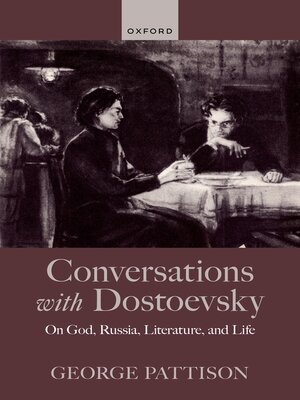
Sign up to save your library
With an OverDrive account, you can save your favorite libraries for at-a-glance information about availability. Find out more about OverDrive accounts.
Find this title in Libby, the library reading app by OverDrive.



Search for a digital library with this title
Title found at these libraries:
| Library Name | Distance |
|---|---|
| Loading... |
Conversations with Dostoevsky presents a series of fictional conversations taking place between November 2018 and Spring 2019 in the narrator's Glasgow apartment and elsewhere in the city. At the beginning of the conversations, the narrator has been reading Dostoevsky's story A Gentle Spirit, which concludes with a dramatic statement of protest atheism. This statement suggests that love is not possible in a purely mechanical universe in which all living beings are condemned to death and ultimate extinction. The conversations spell out Dostoevsky's response to this view and his advocacy of faith in God, Christ, and immortality. The themes discussed include suicide, truth and lies, guilt, determinism, literature, the Bible, Mary, Christ, Dostoevsky and film, 'the woman question', nationalism, war, the Church, the Jewish question, immortality, and God. In addition to conversations between the narrator and Dostoevsky, we drop in on a dinner party at which Dostoevsky is discussed from various points of view and in another conversation Dostoevsky is joined by the philosopher Vladimir Solovyov to discuss nationalism, the Church, and life. We also attend a seminar on 'Dostoevsky, Anti-Semitism, and Nazism', and visit Glasgow's Necropolis on Easter Eve. The conversations in the first part of the volume are accompanied by a series of commentaries in a second part, which contextualize the issues discussed in the conversations with references to his novels, journalism, letters, and notebooks as well as engaging the relevant critical literature.







